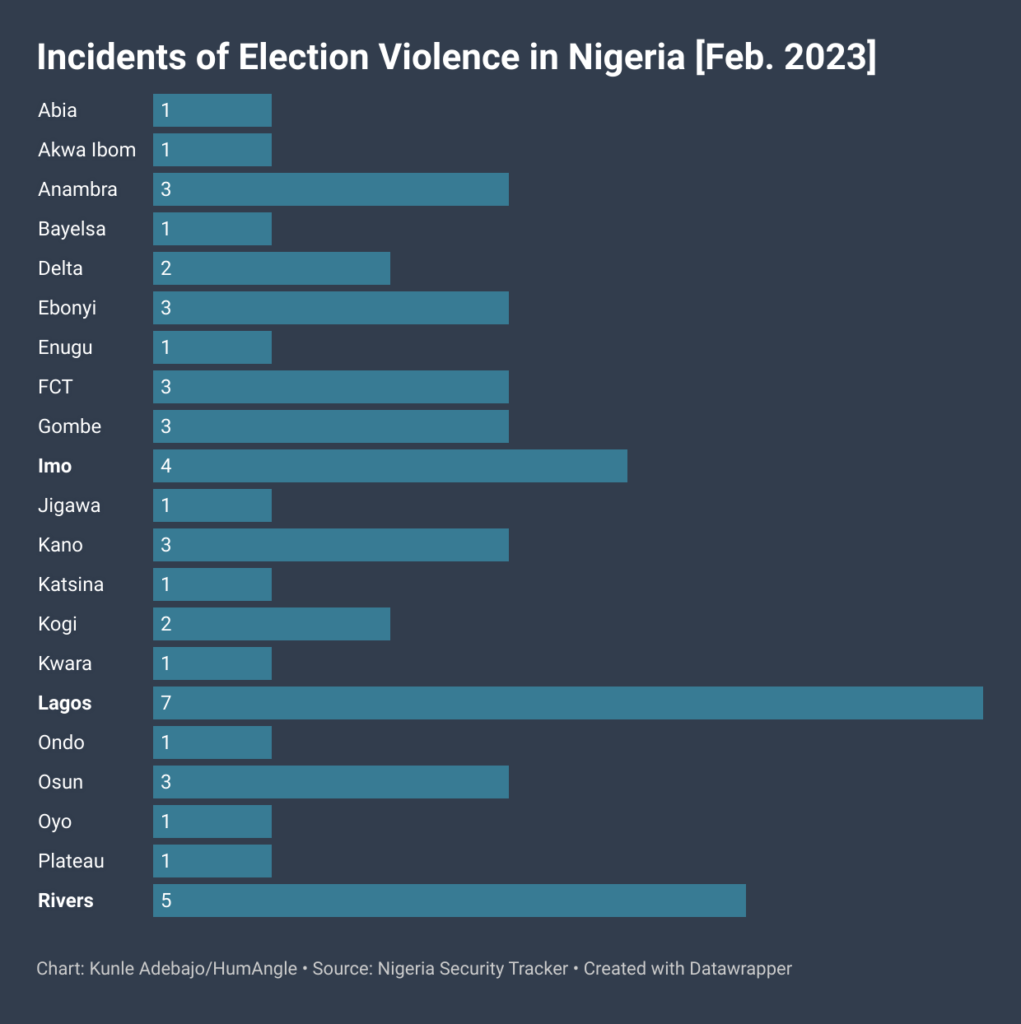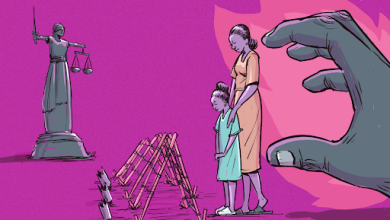Nigeria: One In Seven Civilian Deaths In February Due To Election Violence
Lagos recorded the highest number of incidents, followed by Rivers and Imo states.

Nigeria’s presidential and national assembly elections have come and gone – but not without consequences. According to data gathered by the Council on Foreign Relations, 38 people were reported killed across Nigeria last month owing to election-related violence.
The election-related fatalities represent 15.4 per cent of the total civilian death toll of 247 recorded for the month.
On the day of the national elections, Feb. 25, at least eight people lost their lives during the process. This shows an improvement compared to the death toll of 18 recorded during the presidential election four years earlier on Feb. 23, 2019. However, in 2015, only two lives were lost to election violence during the presidential and federal legislative polls.
There were 48 incidents across 21 states of the country, including the federal capital city. Lagos recorded the highest number of election violence incidents, followed by Rivers and Imo states.

The electoral commission has rescheduled the gubernatorial and state houses of assembly elections for Saturday, March 18, to give it time to reconfigure the accreditation devices. There are concerns that the sub-national elections may be even more violent, especially in states where the ruling political parties are not certain about getting re-elected.
In recent history, gubernatorial elections have proved to be more violent. Analysis of data on the Nigeria Security Tracker (NST) shows that on April 11, 2015, 20 people were reported killed and on March 9, 2019, 27 people lost their lives to election violence.
Asides full-blown violence, Nigeria’s elections have also been affected by cases of intimidation and voter suppression.
“Despite the prevailing insecurity in the country, this was not a significant factor that contributed to incidents of violence during the election processes, with incidents mainly the preserve of political thugs,” the Centre for Democracy and Development (CDD) West Africa noted about the February elections.
“Overall, 6% of our observers reported incidents of violence at the polling units they observed, with the northwest and south-south reporting the most incidents, with the southwest and north-central at the other end of the spectrum.”
The organisation urged the authorities to investigate voting day violence and voter suppression. It also asked political parties to fulfil their commitments to peace and rein in thugs acting at their behest.
Support Our Journalism
There are millions of ordinary people affected by conflict in Africa whose stories are missing in the mainstream media. HumAngle is determined to tell those challenging and under-reported stories, hoping that the people impacted by these conflicts will find the safety and security they deserve.
To ensure that we continue to provide public service coverage, we have a small favour to ask you. We want you to be part of our journalistic endeavour by contributing a token to us.
Your donation will further promote a robust, free, and independent media.
Donate HereStay Closer To The Stories That Matter




